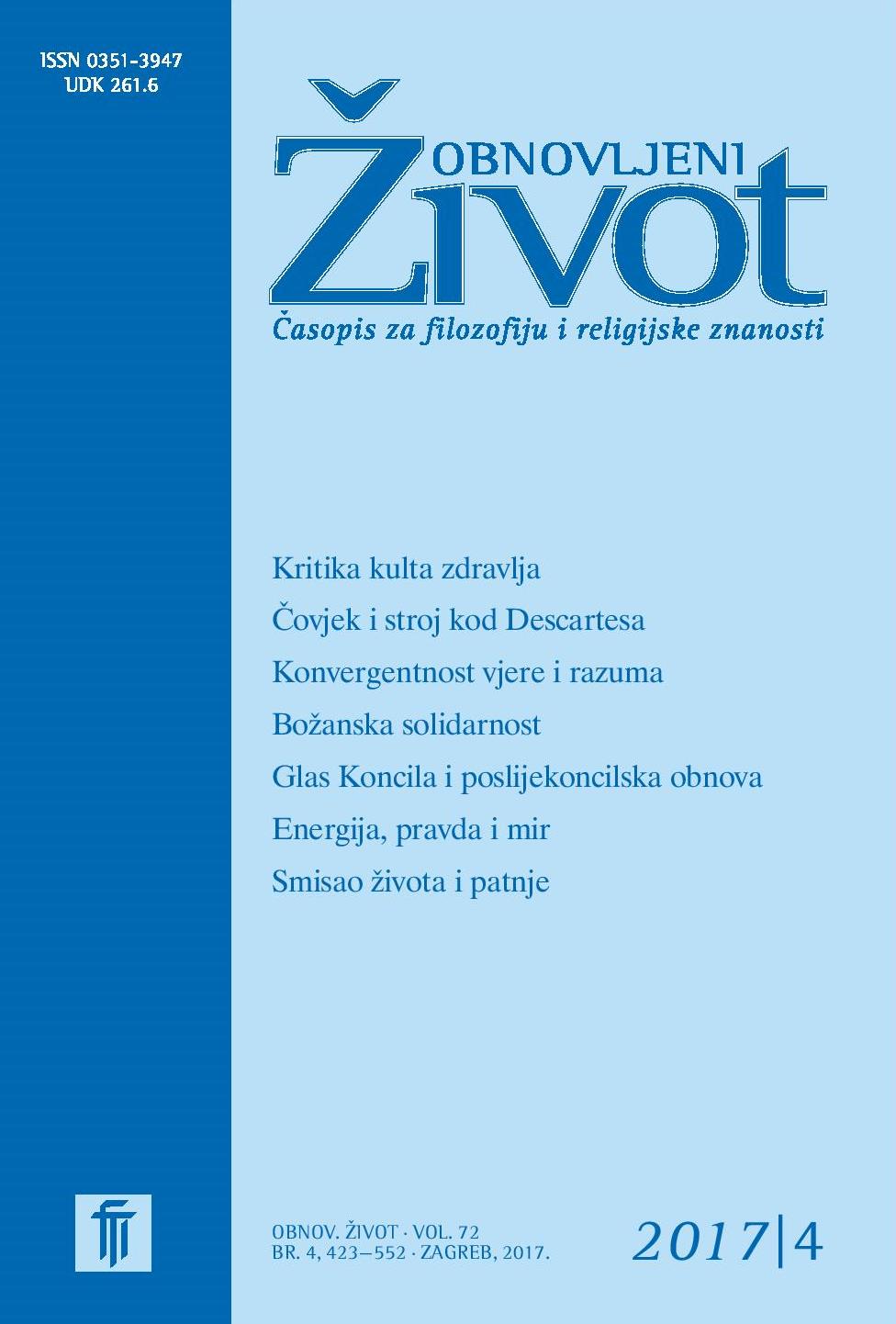Smisao života i patnje promatran kroz katoličko– teološku i psihološko–logoterapijsku perspektivu
Keywords:
meaning of life, suffering, salvific suffering, Viktor E. Frankl, logotherapy, C. G. JungAbstract
Contemporary man, in his constant pursuit of happiness and pleasure, seeks to avoid suffering and pain. However, since suffering is an integral part of life, its meaning represents a major challenge for psychology and religion. The aim of this paper is to look more closely at contemporary man’s search for meaning in life and his experience of suffering — as he often finds himself in a condition of existential frustration and meaninglessness — through the Catholic–theological and psychological–logotherapeutical perspectives. Catholic theology seeks to fathom the meaning of suffering through conformation to the Cross of Christ. In this way, man participates in Christ’s salvific redemption through love which gives profound meaning to his suffering. Humanistic and positive psychology, especially existential psychotherapy and Frankl’s logotherapy, introduce spirituality into the field of psychotherapy: these are based on the assumption that man has a deep longing for meaning which needs to be fulfilled. When enduring suffering, man has the option of taking existential responsibility for it and giving it meaning in accordance with his own values. This leads to deepening self–awareness, to the transcending of oneself and thus finding meaning.
Downloads
Published
Issue
Section
License
Jednom prihvaćeni članak obvezuje autora da ga ne smije objaviti drugdje bez dozvole uredništva, a i tada samo uz bilješku da je objavljen prvi put u Obnovljenom životu. Uredništvo će obavijestiti autora o prihvaćanju ili neprihvaćanju članka za objavljivanje.
Članci objavljeni u časopisu se, uz prikladno navođenje izvora, smiju besplatno koristiti u obrazovne i druge nekomercijalne svrhe.


